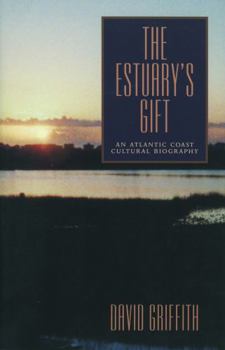The Estuary's Gift: An Atlantic Coast Cultural Biography
(Part of the Rural Studies Series)
A coastal region's oldest inhabitants, particularly families of watermen and commercial fishers, often possess the deepest knowledge about a region and its ecological problems. Because of this, assaults on watermen lifeways and commercial fishing families--whether from organized recreational interests, real estate developers, or public policy makers--reduce the cultural and biological diversity of the coast and often upset the delicate environmental balance. Through the lens of the Mid-Atlantic Coast, especially the Chesapeake Bay and the Albemarle and Pamlico Sounds of North Carolina, David Griffith develops the theme that environmental degradation follows the loss of the most intimate understandings of coastal ecosystems.
In The Estuary's Gift, Griffith traces the development of Mid-Atlantic cultures from the Algonquins and the earliest European families who hunted whales and netted herring, to present-day commercial fishing families who work the complex estuarine systems of the coast. In the process, he chronicles a series of developments that erode communities across American landscapes: the wearing away of local and regional history that results when national retail and restaurant chains convert local merchants into clerks and busboys, or the loss of biological diversity that follows the reconfiguration of countrysides to support monocrop agriculture, industrial chicken production, hog farming, forestry, and mining.
Griffith insists that we heed the ways we treat one another in light of the ways we treat nature, measuring both by the standards we invoke when we give and receive gifts. Stories of conflict among fishers, of Mexican immigrant women brought to seafood houses to pick the meat from cooked, cooled crab--displacing and replacing African-American women--and of the slow yet steady attempts to criminalize family fishing practices that reach back thirteen generations show the ways in which the rights, obligations, and responsibilities of gift exchange have eroded. Only when we consider human relations as an integral part of the natural cycles will we begin to restore the balance.
More than an account of the decline of fishing families or stressed natural resources, The Estuary's Gift illustrates how pressing social problems, such as environmental degradation and assaults on working families, play out in local contexts and local history.





